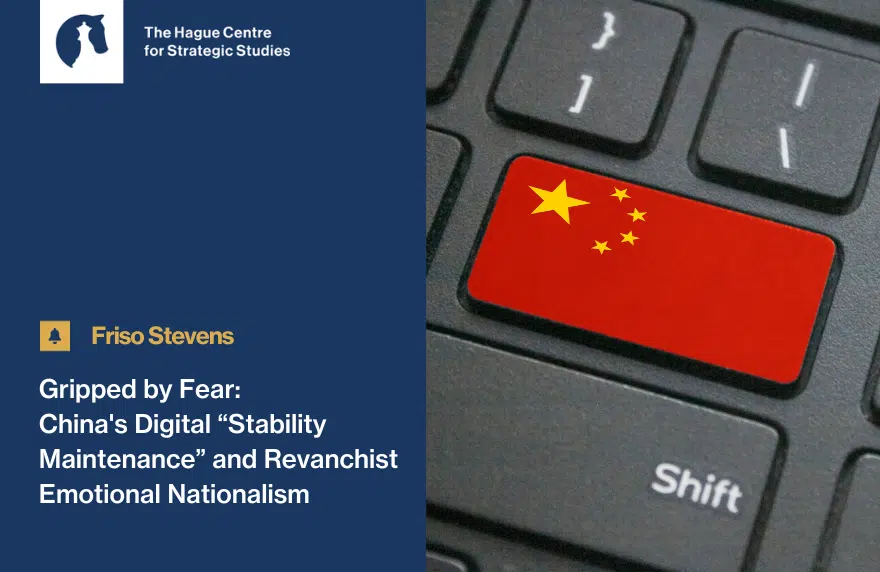In a new article for the Journal of Current Chinese Affairs, HCSS Senior Fellow Friso Stevens examines the substance and mechanisms of Chinese nationalism, by probing the boundaries of the permissible in online discourse, and explaining how the uncompromising emotions expressed online interrelate with the patriotic messages that the government espouses.
The party’s obsession with maintaining social stability stems from a profound fear of the people demanding freedoms it cannot give. With a stagnating economy, China under Xi Jinping has doubled down on the repression and propaganda levers. This means that constructing external enemies and keeping down projected traitors is deemed key. Yet a scenario where government censors, digital cheerleaders, or the covert police state are no longer able to “cool popular emotions” is no inconceivable possibility, and would mean a challenge to the Chinese Communist Party’s rule that is entirely of its own making.
In his analysis, Stevens explains the complex workings of China’s digital “stability maintenance” – the old guard’s obsession with preventing upheaval that may result in the party losing its hold on power – and how that relates to the revanchist emotional nationalism that it promotes in parallel. The party nourishes a potent adversarial nationalism from childhood that creates a predisposition that circulates within the closed-off Chinese information bubble, constantly reinforced by patriotic content. This can then be activated by projected external infringements on China’s great power prestige and historical sensitivities, a narrative where the party-state invariably plays the role of hero and protector of the Chinese nation. Nonetheless, a scenario where government censors, digital cheerleaders, or the covert police state are no longer able to “cool popular emotions” and prevent sustained protests offline is no inconceivable possibility.
In sum, the Orwellian world that Xi has created is gripped by mutually sustaining fear: fear of the population desiring more freedoms, as they signalled in June 1989, and go further than “routine cynicism and contempt”; and, on the side of the urban middle class, a fear of losing out to peers in the intense competition for jobs, housing, and a happy family life, high pressure and anxiety that is now exacerbated by a fear of being on the wrong side of the ever-changing discursive red lines, narrowing an already limited release valve. Indeed, even in high-flying cosmopolitan Shanghai, the incontrovertible reality that no one is exempt from the unbending will of the party has now sunk in.
This article was first published on March 17, 2025, in the Journal of Current Chinese Affairs.







